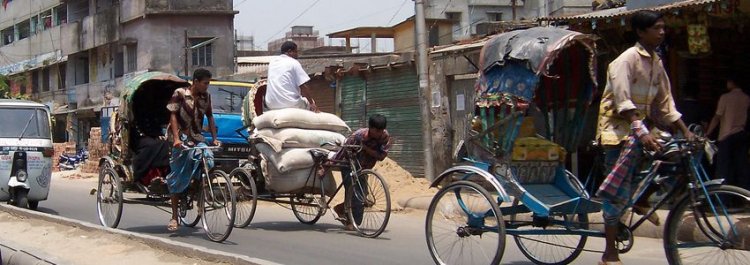Globalisation in the manufacturing and service industries began to sharply accelerate in the 1980’s as advances in communications and transport technology enabled companies to begin exploiting the vast global workforce on a scale which was previously impossible. Firms adopted business models based on locating production in countries where labour laws are weak, virtually non-existent or poorly enforced, and thus workers are effectively blocked from organising unions and engaging in collective bargaining with employers.
The global supply chain has become a standard means by which international brands are able to maximise revenues and continuously seek an edge on their competitors by driving production costs ever lower. So tragically but not surprisingly it has taken a fire in the Dhaka suburb Savar, which has seen the loss of more than 1200 lives, for major corporations to accept responsibility for safety.
Our heartfelt congratulations and thanks go to IndustriAll and UNI for their achievements in ensuring a strong agreement.
But there is more to be done. After years of demands from local and international union voices for labour law reform reinforced by the analysis of the deficits by the ILO Committee of Experts, the Bangladesh Government is still dragging its heels.
We demand labour law reform that meets the test of ILO standards, and you and your governments can help.
Briefing your governments on the agreement, urging their call for national brands to sign the agreement and to pressure the Bangladesh Government to reform their laws ahead of the ILC will help.
Further, Walmart and Gap must get the message that they cannot stand outside a binding agreement.
The ITUC is heading a mission to Bangladesh this week to work with our affiliates and community actors to formulate a plan for organising for labour reform and union growth. We have the ambition to propose to the General Council that Bangladesh be listed as a ’Country as Risk’ target for 2014.
Ultimately, it is only unions, with the right to freedom of association and collectively bargaining, who can organise to protect workers from exploitation, to achieve safe work and fair wages and conditions. Only unions can and will hold employers and governments accountable.


